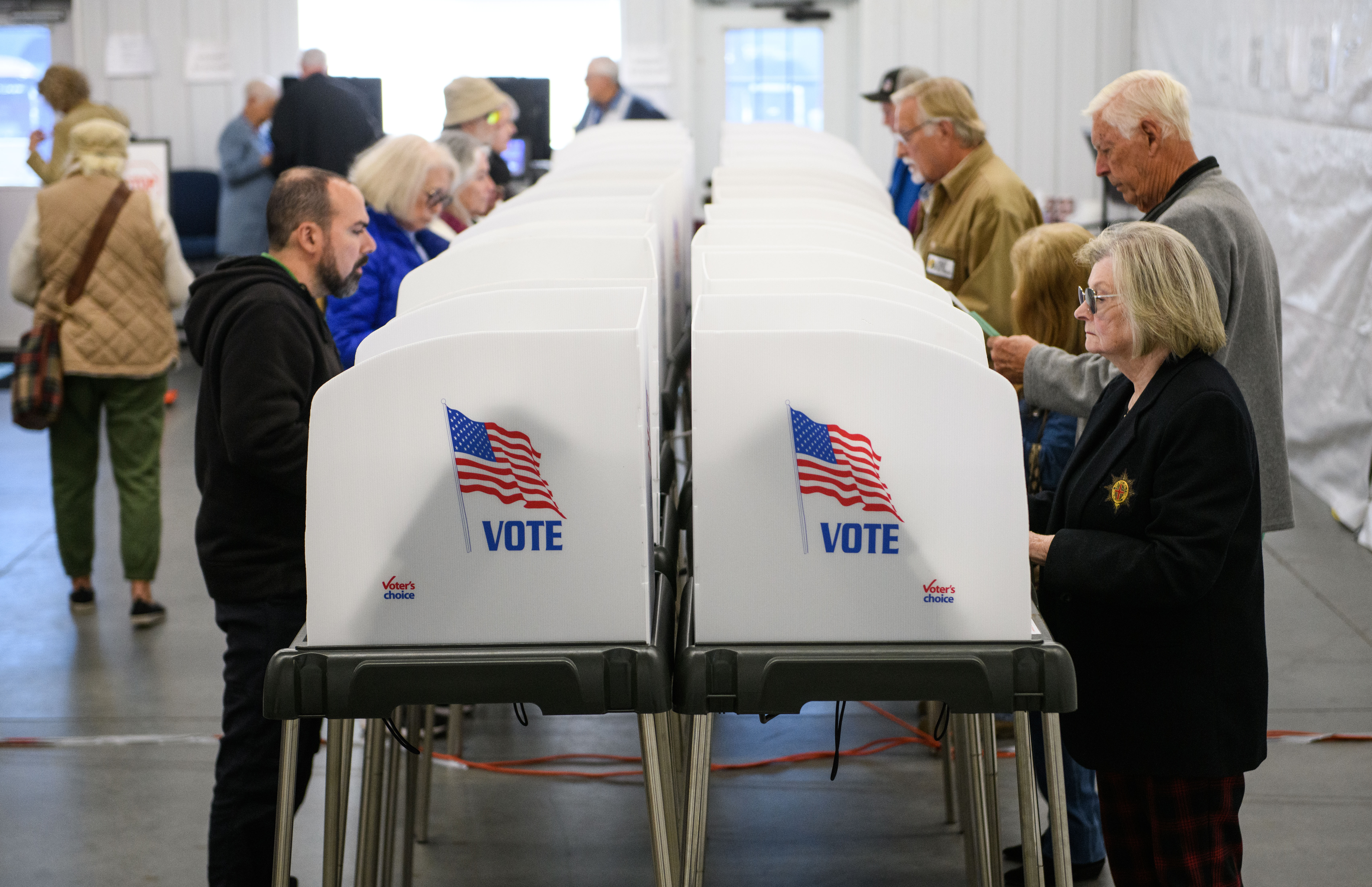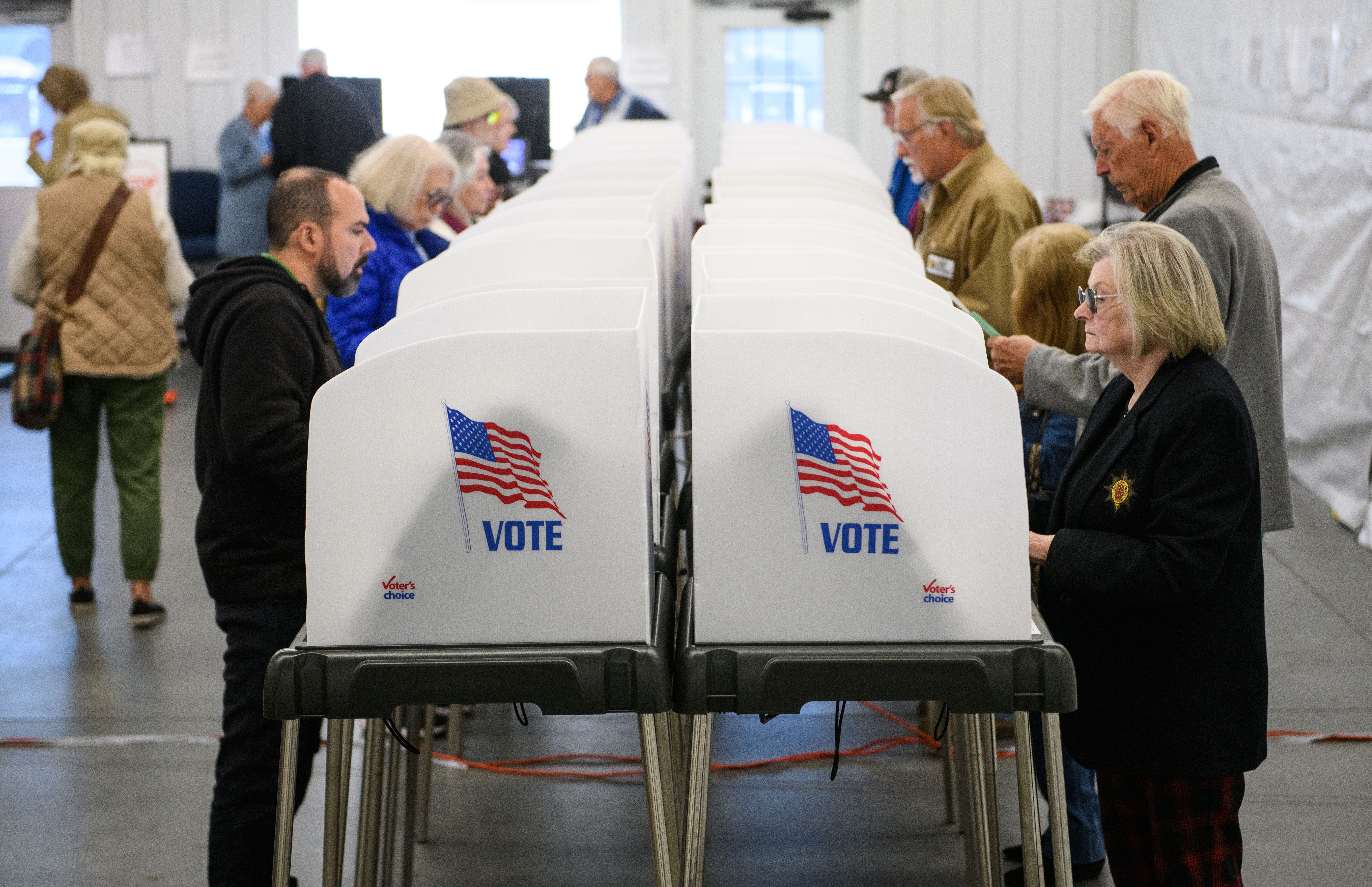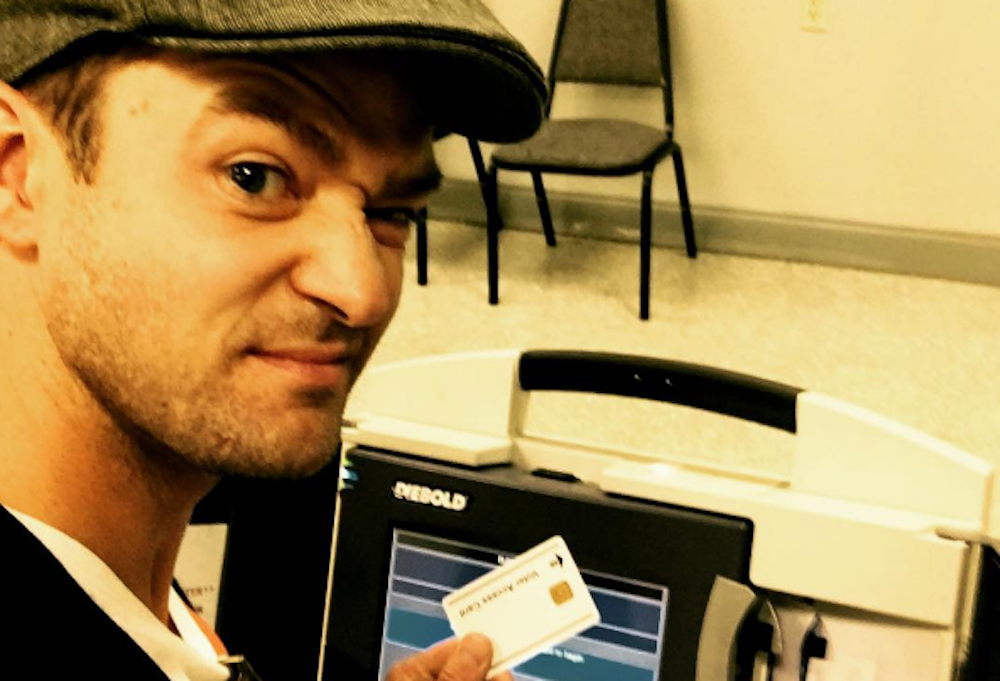Can you take selfies at voting booths?
Justin Timberlake made headlines in 2016 for taking a selfie at a polling booth in his home state of Tennessee

Your support helps us to tell the story
From reproductive rights to climate change to Big Tech, The Independent is on the ground when the story is developing. Whether it's investigating the financials of Elon Musk's pro-Trump PAC or producing our latest documentary, 'The A Word', which shines a light on the American women fighting for reproductive rights, we know how important it is to parse out the facts from the messaging.
At such a critical moment in US history, we need reporters on the ground. Your donation allows us to keep sending journalists to speak to both sides of the story.
The Independent is trusted by Americans across the entire political spectrum. And unlike many other quality news outlets, we choose not to lock Americans out of our reporting and analysis with paywalls. We believe quality journalism should be available to everyone, paid for by those who can afford it.
Your support makes all the difference.Selfies of people with “I voted” stickers are all over Instagram — but that might be as close as many across the US get to sharing that they’ve completed their civic duty this election cycle.
The question of whether a voter is legally allowed to snap a selfie with their filled-in ballot solely depends on where they live.
Ballot selfies are permitted in half of US states — but are prohibited in 13 states, according to a report by the nonprofit Lawyers for Good Government.
Specifically, seven states ban selfies at polling locations but allow photos of a voter with their mail-in or absentee ballot; the other nine don’t clarify the location or type of ballot, the nonprofit said.
The seven states that explicitly ban voting booth selfies are Arizona, Texas, West Virginia Maryland, Delaware, Pennsylvania and Tennessee.
Some may recall Justin Timberlake posting a selfie at a polling booth in his hometown of Memphis, Tennessee while casting a vote in the 2016 election.

But the practice was banned in 2015. The law states: “Any voter using a mobile electronic or communication device…shall be prohibited from using the device for telephone conversations, recording, or taking photographs or videos while inside the polling place.”
Timberlake was not punished for the selfie. The Shelby County District Attorney at the time said that it had no plans to look into the incident: “No one in our office is currently investigating this matter nor will we be using our limited resources to do so.”
He told “Tonight Show” host Jimmy Fallon at the time that he “had no idea” that ballot selfies were illegal in his home state.
In theory, breaking the law would be a misdemeanor, punishable by up to 30 days in jail or a fine of $50, CNN reported.
Meanwhile in three states — New Hampshire, Georgia and Indiana — courts ruled that these laws prohibiting the practice were unconstitutional.

The law is currently being challenged in North Carolina, where a woman is suing election officials and Wake County after she posted a selfie with her completed ballot, arguing the law violates her right to free speech.
Secret ballots are a fixture of modern American elections. But they only started coming into play in the late 1800s, aiming to eliminate intimidation and bribery from the process that occurred when casting votes was public, according to Campaign Legal Center.
But the ubiquity of cellphones has thrown a wrench into these centuries-old laws.
In its report, the Lawyers for Good Government called for more transparency around ballot selfie bans due to this potential conflict.
“Although it would be rare for a state to actually arrest and charge a person solely for taking a ballot selfie, it is important for states to update their laws to make them clear, understood, and enforceable,” the report states.
The nonprofit continued: “They should narrowly tailor the language to apply only when a selfie is evidence of an actual crime, and investigate coercion, bribery, and other elections’ crimes without undermining protected political speech.”
Join our commenting forum
Join thought-provoking conversations, follow other Independent readers and see their replies
Comments